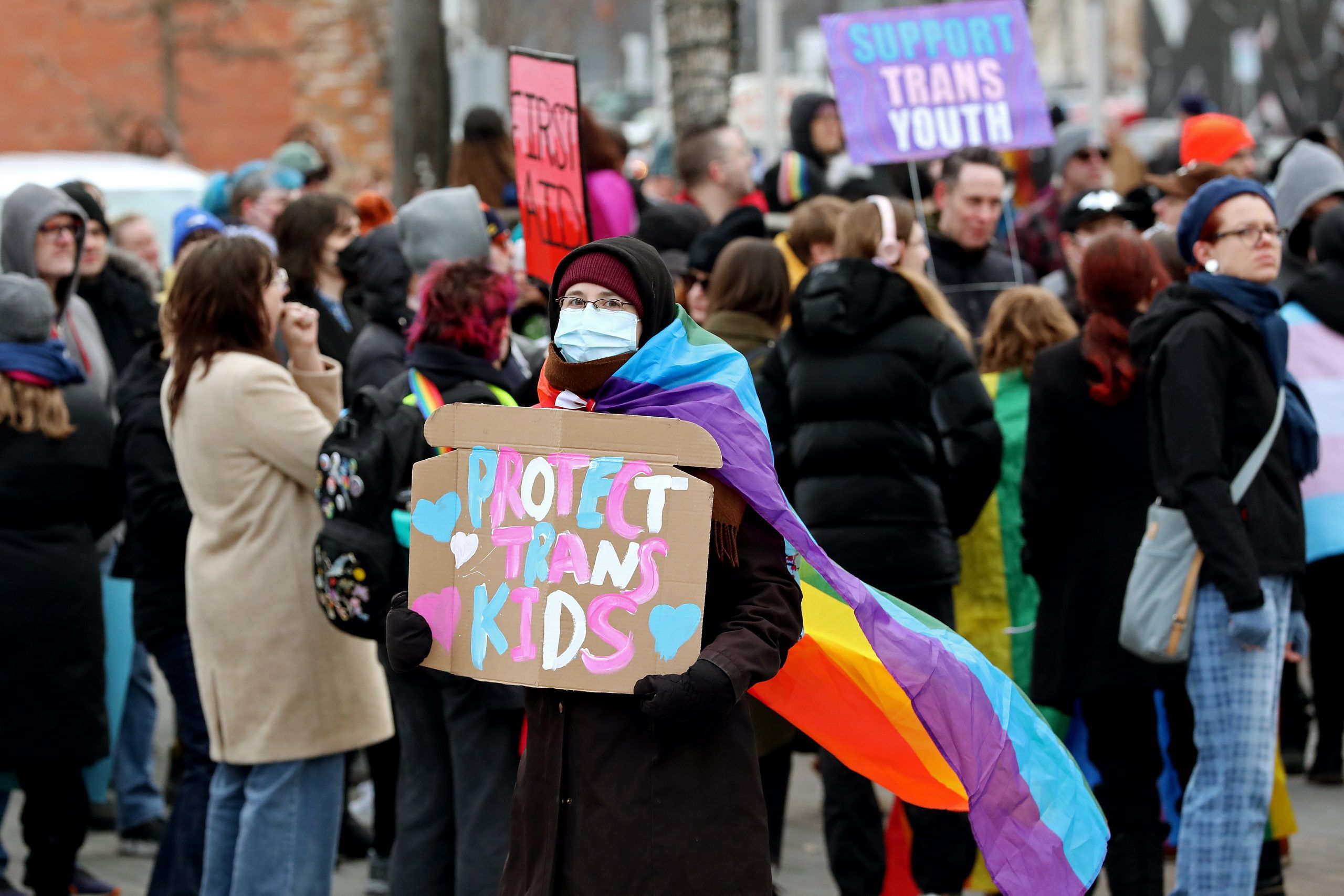
‘There’s something deeply inconsistent about protecting minors by overriding their rights’
Three dozen Alberta law professors, legal researchers and staff have published an open letter to Premier Danielle Smith that calls on her to reverse the province’s forthcoming transgender policies that they warn violate multiple sections of the Canadian Charter of Rights and Freedoms.
The six-page letter, whose signees work at the University of Alberta and University of Calgary faculties of law, was posted online Thursday. It outlines the authors’ concerns with the policy changes announced by Smith two weeks ago.
“These restrictions will harm two-spirit, trans, and gender diverse children and youth by undermining their education, restricting their access to health care, and narrowing their sport and recreation opportunities. We believe these restrictions violate their rights,” the letter states.
“The rights, physical health, mental health and, indeed, the very lives of two-spirit, trans and gender diverse youth are at stake.”
The authors go on to state their belief that the policies violate sections of the Charter protecting freedom of expression, the right to life, liberty, and security of person, the right not to be subjected to any cruel and unusual treatment, and equality rights.
“Children hold rights under the Charter, and any policies regarding children must abide by the best interests of the child principle enshrined in Canadian and international law.”
At a Feb. 1 news conference, Smith didn’t directly answer a question when asked how confident she is that the new policies will not violate the Charter.
“I guess I’ll have the lawyers debate that out, but my understanding is that it’s pretty well understood that parents are principally responsible for their children up to and including age 15, at age 16, or 17,” she said.
When asked if she would invoke the notwithstanding clause to sidestep the Charter, Smith didn’t close the door.
“I hope it doesn’t come to that.”
Florence Ashley, an assistant professor at the University of Alberta faculty of law, was among those that signed the letter, and characterized the government’s plans as “extremely concerning.”
The authors also call on Smith to avoid using section 33 of the Charter, the notwithstanding clause, to insulate the policies from further court challenges, as Saskatchewan did last fall after announcing its school pronoun policies.
Smith told Postmedia late last year that she would consider using the notwithstanding clause if it is needed to protect her government’s promised compassionate care legislation.
Ashley said using the clause would target a vulnerable minority group by taking away the rights of trans youth.
“There’s something deeply inconsistent about protecting minors by overriding their rights.”
— with files from Lisa Johnson
mblack@postmedia.com



